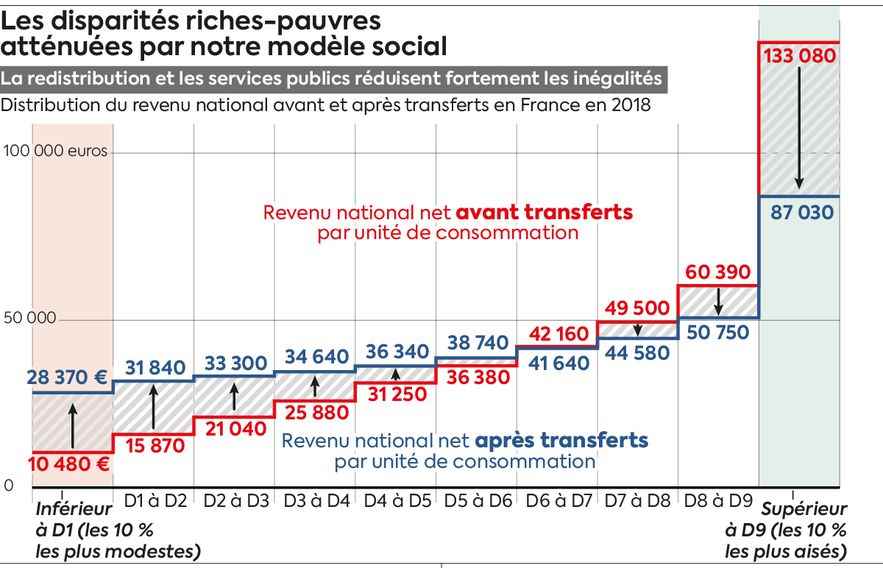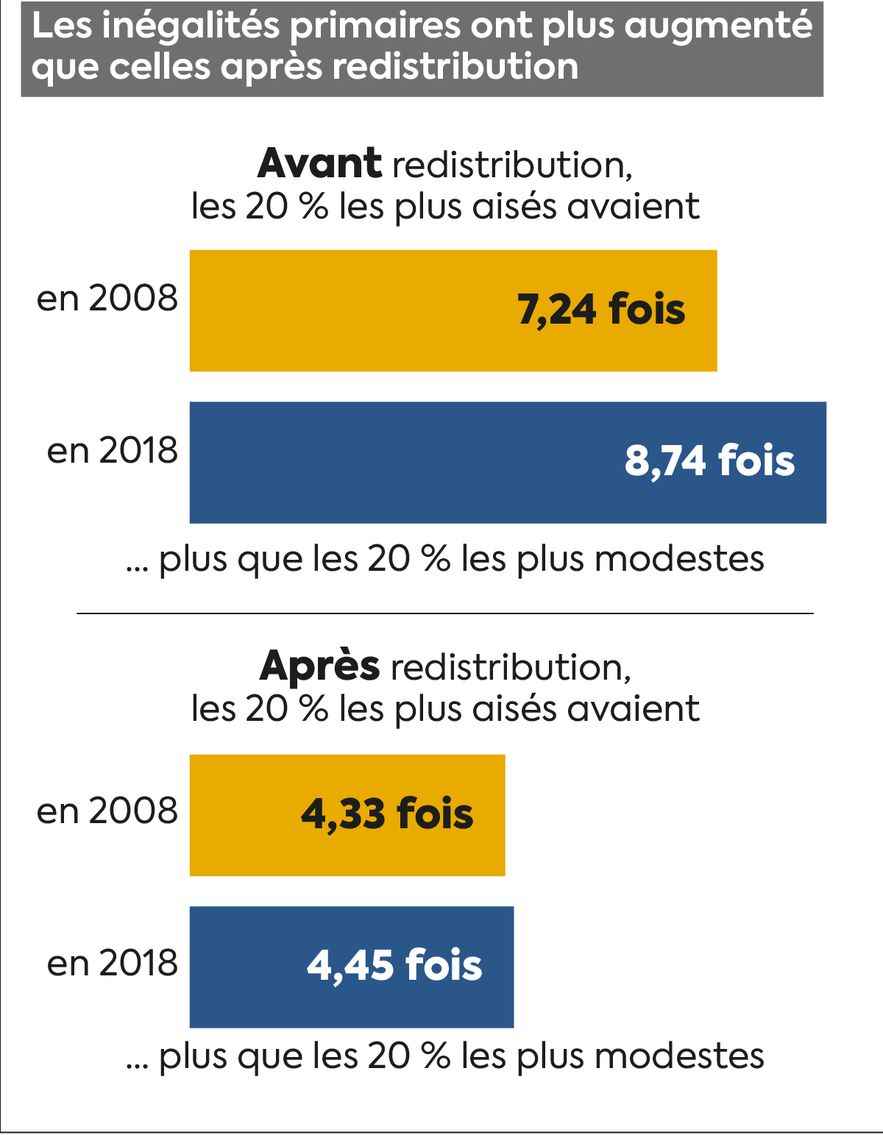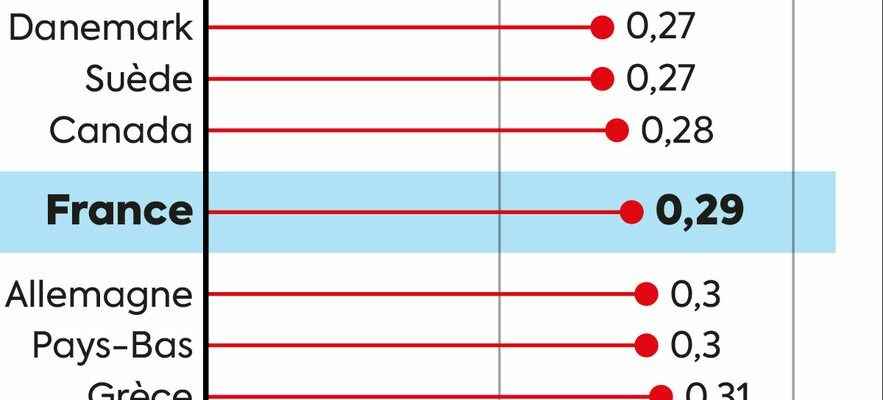“I think that democratic peoples have a natural taste for freedom; left to their own devices, they seek it, they love it, and they see only with pain that they are being kept away from it. But they have for l equality an ardent, insatiable, eternal, invincible passion.” The words of the politician and philosopher Alexis de Tocqueville may date back almost two centuries, but they resonate particularly strongly in the French landscape. The outbreak of the financial crisis in 2008, the eruption of yellow vests a decade later, the earthquake of the Covid pandemic and now the great return of inflation have brought the question of inequalities between rich and the poor.
It is indeed difficult for households who tighten their belts every month, frequent the shelves of discounters in search of the lowest prices and scour second-hand sites and applications not to experience a feeling of bitterness when they compare their income to the salaries of athletes or big bosses, as recently illustrated by the controversy over the remuneration of Patrick Pouyanné, the CEO of TotalEnergies.
“However, we do not have to be ashamed of our position in the various rankings: if we compare ourselves to the rest of the world, we are one of the least unequal countries with regard to income”, underlines Julien Damon, sociologist and columnist for L’Express. If France does not prance in the lead unlike Belgium, Denmark or Sweden, it still ranks in the category of good students, ahead of Germany, the Netherlands, Spain, Japan or the United States if we look at the Gini index, a synthetic indicator used by economists to measure inequalities.
© / Dario Ingiusto / L’Express
Above all, France is distinguished by one characteristic: its social model works as a very effective shock absorber and greatly reduces income disparities between the richest and the poorest. In summary: France takes a significant portion of wealth and redistributes it through monetary benefits such as social minima (RSA, minimum old age, etc.) or family allowances. “This is a real political choice: redistribution in our country reduces inequalities more than elsewhere in Europe”, explains Mathilde Viennot, project manager at France Strategy and co-author of a study on the subject with Julien Rousselon. . According to their calculations, the hexagonal socio-fiscal model indeed reduces inequalities by 25%, against 22.6% in the European median.

© / Dario Ingiusto / L’Express
Redistribution is even greater with public services
As a result, despite a slight increase in disparities between the richest and poorest households since the great crisis of 2008, the protective cushion has continued to play its role, and “primary” inequalities have increased much more than those after redistribution, according to figures from the National Institute of Statistics and Economic Studies (Insee).

© / Dario Ingiusto / L’Express
“We must also add to monetary redistribution the impact of public services, such as education, health or housing, which are almost as important in reducing inequalities in France, even if this is more complicated to measure. “, specifies François Ecalle, specialist in the analysis of public finances and founder of the Fipeco site. A note from INSEE published last year nevertheless set out to measure the phenomenon. According to the calculations of these statisticians, the redistribution is in fact twice as great if the various public services are included. And two-thirds of our fellow citizens receive on average more in benefits and public services than they pay in taxes, duties or social security contributions.
“However, the feeling of the French is the same as that of very unequal countries, such as the United States or Mexico”, observes Michael Förster, who headed the unit responsible for this subject within the Organization for Cooperation and of economic development between 2009 and 2022, based on studies carried out on the perception of inequalities. This feeling can be explained in particular by a very strong sensitivity to the gaps between standards of living and to the situation of the poorest. “Contrary to certain political speeches which denounce the assistantship, our last report shows that the French are very attached to the protection of the weakest: only 10% of them think that we do too much for the most deprived”, details Louis Maurin, director of the Observatory of Inequalities.
The sensitivity of the French to the question of inequalities is also to be linked to an impression that “it was better before”. “The reduction in the gaps was indeed very strong in the 1970s and 1980s, before easing and stagnating since the 2008 crisis: the slope counts more than the level in the feeling”, confirms Olivier Galland, sociologist and director of research at the National Center for Scientific Research. Last explanation: income inequalities are not the only ones to fuel the feeling of injustice of the French. If we look at the disparities concerning heritage, the French model is then much less effective in reducing inequalities. “Not to mention those of destiny, which France has great difficulty in reducing: we prefer to compensate them with money and redistribution”, sighs Olivier Galland. An encouraging overall picture, but one that can still be improved.
